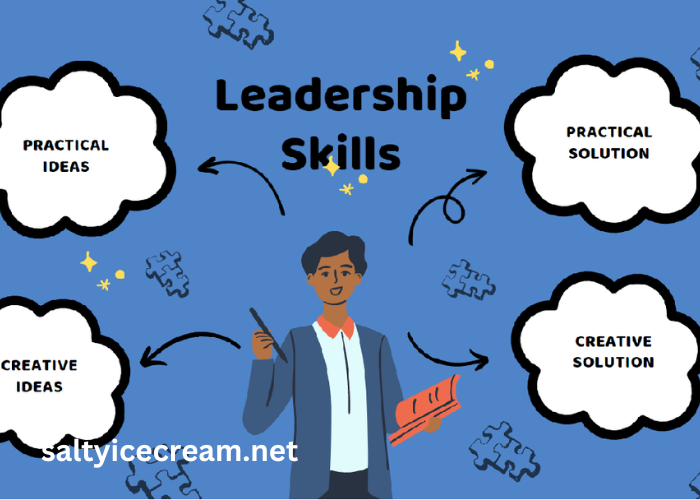Leadership is the cornerstone of business success. Effective leaders not only inspire and guide their teams but also create an environment that fosters innovation, collaboration, and growth. In today’s dynamic and competitive business landscape, honing leadership skills is more critical than ever. This article explores the key strategies and skills leaders need to drive organizational success, with actionable insights to maximize impact.
1. Introduction: The Role of Leadership in Business Success
Leadership is the art of motivating a group of people to achieve a common goal. In business, it is the driving force behind innovation, productivity, and long-term success. A strong leader sets the vision, aligns teams, and builds a culture that empowers individuals to perform at their best.
2. Understanding Leadership Styles
Leadership styles, such as transformational, transactional, and servant leadership, play a pivotal role in how a leader interacts with their team. Understanding these styles helps leaders adapt to different situations, ensuring that their approach aligns with organizational goals and team dynamics.
3. Developing Emotional Intelligence
Emotional intelligence (EI) is a critical trait for effective leadership. Leaders with high EI understand and manage their own emotions while empathizing with others. This skill fosters trust, improves communication, and enhances team cohesion, creating a positive workplace culture.
4. Effective Communication: The Backbone of Leadership
Clear and transparent communication is essential for aligning teams and driving results. Leaders must master both verbal and non-verbal communication to ensure their vision and expectations are understood. Active listening and feedback are equally vital for fostering a two-way dialogue.
5. Building a Vision and Inspiring Others
A compelling vision gives teams a sense of purpose and direction. Leaders who articulate a clear, achievable vision and align their teams around it inspire commitment and drive. Visionary leadership ensures that everyone is working toward a shared goal.
6. Decision-Making Skills: Balancing Logic and Intuition
Effective leaders are decisive. They gather relevant information, weigh pros and cons, and make informed decisions promptly. Balancing analytical reasoning with intuitive judgment ensures leaders can navigate complex business challenges with confidence.
7. Leading Through Change
Change is inevitable in business, and leaders must navigate it effectively. Whether introducing new technologies, restructuring teams, or adapting to market shifts, change management skills help leaders guide their organizations through transitions smoothly.
8. Fostering a Culture of Innovation
Innovation drives growth, and leaders play a key role in fostering creativity. By encouraging risk-taking, providing resources, and rewarding new ideas, leaders can create an environment where innovation thrives and competitive advantage is achieved.
9. Empowering Teams for Maximum Productivity
Empowered teams are more engaged and productive. Leaders can maximize team performance by delegating responsibilities, providing training, and trusting employees to make decisions. Empowerment boosts morale and drives organizational success.
10. The Importance of Adaptability in Leadership
In a rapidly changing business world, adaptability is crucial. Effective leaders remain flexible, embracing new ideas and adjusting their strategies as circumstances evolve. This ability to pivot ensures resilience and sustainability.
11. Developing Coaching and Mentoring Skills
Great leaders are also great mentors. Coaching and mentoring help employees develop their skills and realize their potential. By investing in their team’s growth, leaders build a loyal and high-performing workforce.
12. Navigating Conflict Resolution
Conflict is unavoidable in any workplace, but skilled leaders manage it constructively. By addressing issues promptly and facilitating open dialogue, leaders turn conflicts into opportunities for growth and collaboration.
13. Leveraging Technology for Leadership Excellence
Technology is a powerful tool for modern leaders. From project management software to AI-driven analytics, leveraging technology helps leaders streamline operations, make informed decisions, and enhance team collaboration.
14. Measuring Leadership Success
The impact of leadership can be quantified through metrics like employee engagement, team productivity, and business performance. Regularly assessing these indicators helps leaders identify areas for improvement and ensure they are driving positive outcomes.
15. Conclusion: Becoming a Transformational Leader
Effective leadership is a journey of continuous learning and growth. By mastering essential skills like communication, adaptability, and emotional intelligence, leaders can inspire their teams and drive business success. Transformational leadership not only achieves organizational goals but also creates a legacy of positive change and empowered individuals.
Investing in leadership development is investing in the future of any business. As the challenges of the modern world evolve, so too must leaders, embracing innovation, resilience, and a commitment to excellence.

